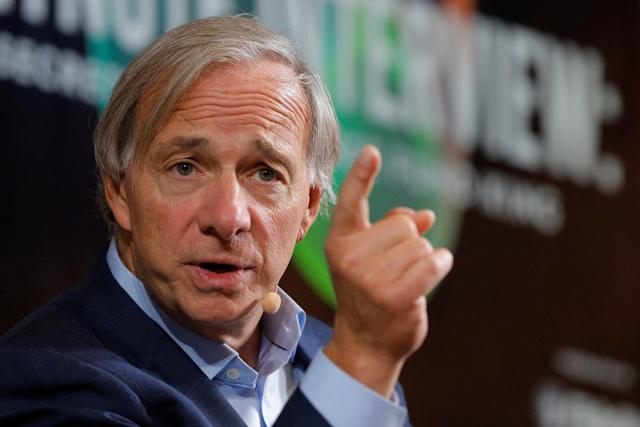Ray Dalio isn’t the type to shout warnings for fun. He’s the guy who called the 2008 financial crash when almost everyone else missed it. And now? He’s back with another red flag. This time, it’s darker. He says the U.S. may not just face a recession. It could be something worse. Way worse.
The Trigger: Tariffs and Tensions
On Meet the Press, Dalio didn’t sugarcoat it. He pointed straight at the U.S. government’s tariff-heavy policies. “It’s like throwing rocks into the production system,” he explained. Short sentence. Big meaning.
Tariffs raise costs. They choke supply chains. They mess with trade flow. And when you already have record-high U.S. debt plus political division? The math doesn’t look good. Dalio’s warning was simple, almost brutal: this is how systems crack.
History, Repeating on Loop
Dalio believes economies move in cycles. Patterns repeat. Like history playing the same song with new instruments. And right now, he says, the rhythm looks awfully familiar. Protectionism. Deficits. Fragile alliances. All the ingredients of past global downturns are back on the table.
And he wasn’t speaking in vague theory. He said if the U.S. can’t cut its deficit down to about 3% of GDP? Trouble. Not a “mild slowdown” kind of trouble. Think bigger.

Not Just Him
Dalio isn’t a lone wolf here. Mark Cuban the billionaire investor who never minces words echoed similar fears. In his blunt way, Cuban warned that tariffs mixed with government spending cuts could light the fuse for something “far worse than 2008.”
When two billionaires who rarely agree on anything are suddenly saying the same thing? People listen. Or at least, they should.
Why Should You Care?
Because this isn’t abstract. Tariffs mean higher grocery prices. Debt means heavier taxes down the road. And if the economy cracks? Jobs vanish. Savings shrink. Families feel the squeeze first. Always.
Dalio isn’t saying collapse is guaranteed. But he’s pointing at a cliff and asking are we really going to keep walking?
Dalio’s voice carries weight because he’s been right before. Painfully right. The real question now isn’t whether a storm is brewing. It’s whether policymakers can steer before it hits.
And if not? Well. We might be telling our kids one day yeah, we saw it coming. And no, we didn’t stop it.


